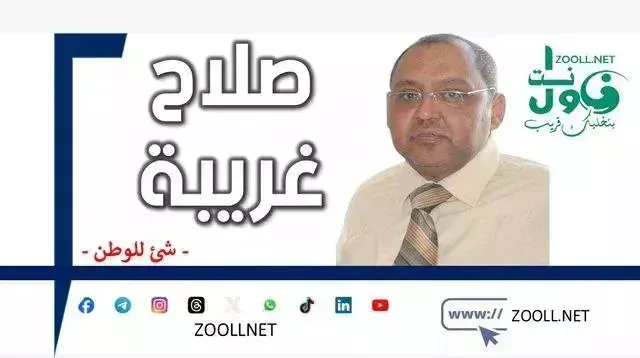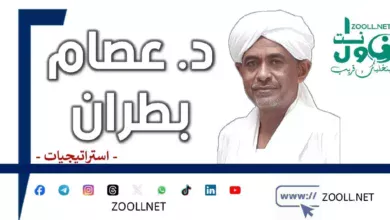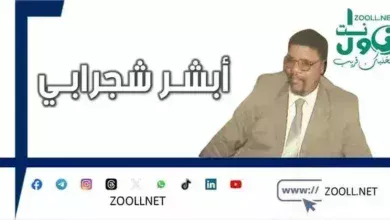Climate change…an existential threat that is imposing itself on Sudan – A gesture for the homeland – ✍️ Mr. Salah Ghariba

There is no doubt that climate change has gone beyond a theoretical threat to become a tangible reality that is devastating countries around the world, especially developing countries like Sudan. Repeated droughts, devastating floods, torrential torrents, desertification of land and rising levels of the Red Sea are all direct effects of climate change that are devastating vital sectors in Sudan, such as agriculture, food security and water resources.
I call for climate change to be the cornerstone of the educational process in order to build a deep-rooted environmental awareness. It has become necessary to instill environmental awareness in the souls of future generations from an early age, so that they can understand the challenges facing our planet and contribute to finding innovative solutions. By integrating climate change into the school curriculum, we have sown the seeds of awareness that will produce generations capable of facing future challenges, in addition to enabling young people to participate effectively while providing students with the necessary knowledge on climate change that gives them the tools they need to participate effectively in environmental decision-making, both at the local and national levels. Young people are the driving force of change and are most affected by the impacts of climate change. They must therefore be partners in the process of building a sustainable future, in addition to developing local solutions to global challenges by studying climate change. In schools, students can learn about the challenges that their country is particularly facing, and thus develop innovative solutions adapted to the local context. For example, students from rural areas can develop new technologies to rationalize water consumption, or students from coastal areas can invent solutions to protect coasts from erosion and link theoretical knowledge to practical application: learning about climate change should not be limited to theories and scientific concepts, but rather linked to practical applications by organizing field trips, implementing environmental projects and conducting scientific experiments. Learning by doing is more effective in consolidating knowledge and changing behaviors.
To effectively implement the topic of climate change in schools, teachers need to be trained. Intensive training programs should be provided to teachers to enable them to effectively teach the topic of climate change and provide them with the skills to implement and develop environmental activities and projects. Existing curricula should be revised and climate change topics should be integrated appropriately, taking into account the academic level of students, necessary resources should be provided to implement the topic of climate change, such as textbooks, tools for scientific experiments, laboratories and distance learning techniques, while establishing partnerships with other institutions. Partnerships should be established with government institutions, non-governmental organizations and the sector to strengthen efforts in the field of environmental education.
The role of education is not limited to schools, but extends to the media, which play a vital role in shaping public opinion and educating society about the importance of preserving the environment. Therefore, the Sudanese media must be at the forefront of efforts to address climate change, by giving more space to environmental coverage. The various media must give more space to cover issues related to climate change, simplify scientific information and make it understandable to all and the media. professionals must be trained on how to cover environmental issues in a professional and objective manner, providing them with the necessary knowledge to understand environmental challenges, while encouraging community participation. and provide a platform to present innovative ideas and solutions.
Addressing the challenges of climate change requires the combined efforts of everyone, from individuals to governments and international institutions. By integrating climate change into school curricula, training teachers, providing the necessary resources and activating the role of the media, we can build a generation that is aware of its environmental responsibilities and capable of protecting our planet for future generations.
Let's make environmental education an investment in Sudan's future.






